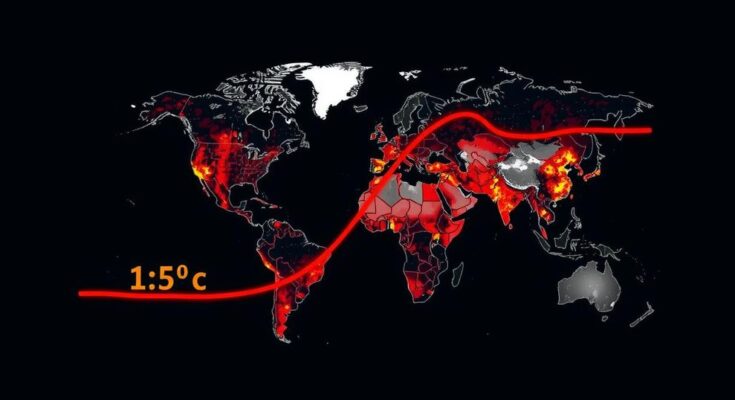John Kerry warned that the world is exceeding the 1.5°C climate target and urged major emitting countries to work together at COP29. He highlighted alarming climate indicators and emphasized the significant responsibility of 23 nations, particularly China, the U.S., and India. Kerry expressed optimism about solutions, echoing President Kennedy’s belief that human choices can address global problems.
John Kerry, the former U.S. special envoy for climate, issued a stark warning that the world is already surpassing the critical 1.5°C threshold of global warming. During a discussion at the Hindustan Times Leadership Summit, he urged participation from countries at the ongoing COP29 conference, highlighting that the majority of global emissions come from just 23 countries, primarily those that are developed or on the brink of development. Kerry underscored alarming indicators of climate change, such as accelerated ice melt and rising sea levels, while detailing the responsibility of major emitters including China, the United States, and India. He called for collaborative action from these nations, particularly acknowledging India’s significant developmental challenges. Despite the severe outlook, Kerry expressed optimism, emphasizing that humanity can solve its self-made problems. His belief aligns with President Kennedy’s notion that human choices are fundamental to the world’s issues.
Climate change has emerged as one of the most pressing global challenges, with rising temperatures and extreme weather patterns posing a significant threat to ecosystems and human societies. The 1.5°C threshold is a critical target established under the Paris Agreement to limit global warming. Exceeding this limit could lead to catastrophic impacts, making the commitment of nations essential. Recent climate conferences have aimed to mitigate these effects, focusing on reducing emissions and enhancing international cooperation.
In conclusion, John Kerry’s remarks serve as a clarion call to the international community, underscoring the urgent need for collective efforts to combat climate change. The responsibility lies heavily with a small number of nations, which must prioritize effective implementation of their commitments. While challenges abound, particularly in populous nations like India, there remains a pathway for resolution through human ingenuity and collaboration.
Original Source: www.hindustantimes.com




